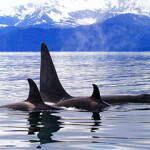Handline tuna fishery becomes first of its kind in Indonesia to pursue full MSC assessment
North American sushi-quality tuna provider Anova Food, LLC., has put its Fair Trade fishery in North Buru Island, Indonesia, up for full assessment against the Marine Stewardship Council’s sustainability standards, the company announced on 26 February.
The handline tuna fishery has become the first of its kind in Indonesia to pursue the MSC assessment, Anova Food said in a press release. The company is working closely with its processing partner Harta Samudra as well as NGO Masyarakat Dan Perikanan Indonesia (MDPI) and the North Buru Fair Trade Committee to compile the documentation required for the assessment. A site visit has been scheduled for March, wherein the compliance assessment body (CAB) will meet with government representatives and other stakeholders to kick off the rigorous process.
“Years of data collection and sustainable fishery practices by Fair Trade fishermen have set the stage for fulfilling the rigorous demands of MSC certification for this handline fishery and we couldn’t be more thrilled,” said Blane Olson, managing director of Anova Technical Services. “Anova first launched the Fair Trade Capture Fishery in North Buru Island five years ago and while it’s successfully been Fair Trade certified, we’ve had our sights set on MSC certification as it’s extremely important for us and our supply chains to reach the highest available standards.”
“At [Indonesia’s Ministry of Maritime Affairs and Fisheries] MMAF, we are proud and excited to see the first Indonesian handline tuna fishery enter an MSC full assessment,” added Pak Zulficar Mochtar, director general of capture fisheries. “This assessment sets a precedent not only for Indonesia, but also for small-scale fisheries around the world for which the MSC standard is most challenging to achieve. This has been made possible thanks to the hard work and commitment in the past few years of all parties involved.”
After tuna first became Fair Trade certified in 2015, Anova has expanded the program throughout its Indonesian supply chains. Last year, the volume of Fair Trade tuna shipped to the U.S. market increased by 75 percent, returning more than USD 100,000 (EUR 87,936) in Fair Trade premiums back to fishing communities, Anova said. The handline tuna fishery in North Buru Island has been involved in a related fishery improvement project (FIP) since 2011, which saw Anova take on a “proactive role by supporting the implementation of rigorous port sampling and data collection programs that met international standards for scientific fisheries data requirements,” according to the company.
The company is confident that its Fair Trade achievements, particularly in the realm of traceability, will translate well during the fishery’s MSC assessment.
“One of the key elements of Fair Trade and MSC certifications is the implementation of a traceability system rigorous enough to trace the fish back to the small-scale fishing vessel that caught it, and more importantly, ensure that no substitution of non-certified product occurs. The traceability system created for Anova by MDPI, ‘Trace Tales,’ tracks each fish back to the individual fisherman and point of landing, tracing a catch’s journey through the entire supply chain,” Anova said.
“It is extremely difficult to meet the MSC standard for a small-scale fishery, composed of thousands of independent one-manned vessels that operate on remote islands,” added Saut Tampubolon, Interim Executive Director of MDPI. “The Fair Trade Committee (FTC) and Fair Trade Associations, which have been in place in North Buru for five years, give an organized structure for the MSC Unit of Assessment. This major advantage of utilizing an existing FTC makes MSC potentially possible.”
If the North Buru Island fishery has a successful assessment against the MSC’s Fisheries Standard, it join a collective of more than 300 engaged fisheries that supply the world with more than 25,000 seafood products.
"We congratulate and support Anova Food USA and the North Buru handline yellowfin tuna fishery as it takes this significant step to enter full MSC assessment,” said Martin Purves, Managing Director of the International Pole and Line Foundation (IPLNF). “As the first handline tuna fishery to enter this process in the region, this moment highlights the growing momentum behind Indonesia's one-by-one fisheries sector and the drive to demonstrate the value that a well-managed fishery can bring, benefiting the fishers and coastal communities involved."






Share